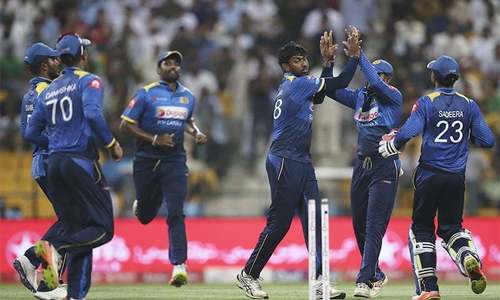Former cricket umpire Simon Taufel's most vivid memory is a moment that shook the cricketing world in 2009, when he was on a bus in Lahore that was attacked by militants targeting the Sri Lanka team.
But he hopes cricket makes a full return to Pakistan, which has largely been shunned by touring teams since the attack but which is awaiting a two-Test tour of Sri Lanka in December.
"Never say never. Things change. There is no country in the world that is immune to bad things happening," Taufel, who was born in the Sydney suburb of St Leonards, told AFP in an interview.
"I do hope that cricket spreads to more parts of the world and even though it was a traumatic experience in Pakistan, I sincerely hope that we see international cricket played there again."
Umpiring 'extremely challenging' in high-tech era
The former top match official said umpiring cricket matches has become increasingly difficult because of the technology now monitoring play.
With dozens of cameras and other technology ready to expose mistakes, the pressure is on the officials who make the crucial calls, said the 48-year-old Australian.
"It can be extremely challenging obviously, if it would be easy everyone would be doing it. It's all about learning through mistakes," Taufel said.
Players can challenge umpires' calls using the Decision Review System, which employs slow-motion replays, ball-tracking technology, audio sensors — the 'Snickometer' — and even heat-sensing, known as Hot Spot, to check whether the ball hit the bat.
Cricket's embrace of technology has been echoed by other sports including tennis, rugby and football, where match officials have also found themselves under growing scrutiny.
"When you compete with those 30-odd cameras, the ball-tracker, Snicko, Hot Spot, the three experts in the commentary position, there are times when you don't deliver perfection," said Taufel, who stood in his first Test when he was only 29.
"But that's part of life. Roger Federer loses the odd match, Tiger Woods misses the odd fairway, these things do happen but if you have paid the price you might as well get the learning and benefit out of it."
Known for his accuracy and extreme fitness, Taufel maintained immense respect from players up to his retirement from the international game in 2012.
He was named umpire of the year for five straight seasons between 2004 to 2008 by the International Cricket Council.
Taufel become an umpire performance and training manager with the ICC at the age of 41 and has recently authored a book, "Finding the Gaps".
"I ask people to focus on the process, don't go for the outcome other people are looking for. People are going to judge you anyway, so give them 'you'," he said.
'Perfection doesn't exist'
Taufel made headlines after the World Cup final in July, when he pointed out that England should have been awarded five runs and not six from a freak deflection in their last regulation over — an umpiring mistake which otherwise went unnoticed.
The hosts went on to win by the barest of margins, on overall boundaries scored, after they were level with New Zealand after 50 overs and an extra 'super over'.
Among other innovations in cricket, India is set to experiment with a separate no-ball umpire in the Indian Premier League after some controversial incidents in this year's edition of the Twenty20 tournament.
Taufel said he is in favour of experiments in the game but warned the authorities against making hasty changes.
"I would encourage people to not necessarily make emotional reactions because of one or two incidents," said Taufel.
"And make sure that we are making change that is adding value rather than searching for perfection that we really know doesn't exist."














































